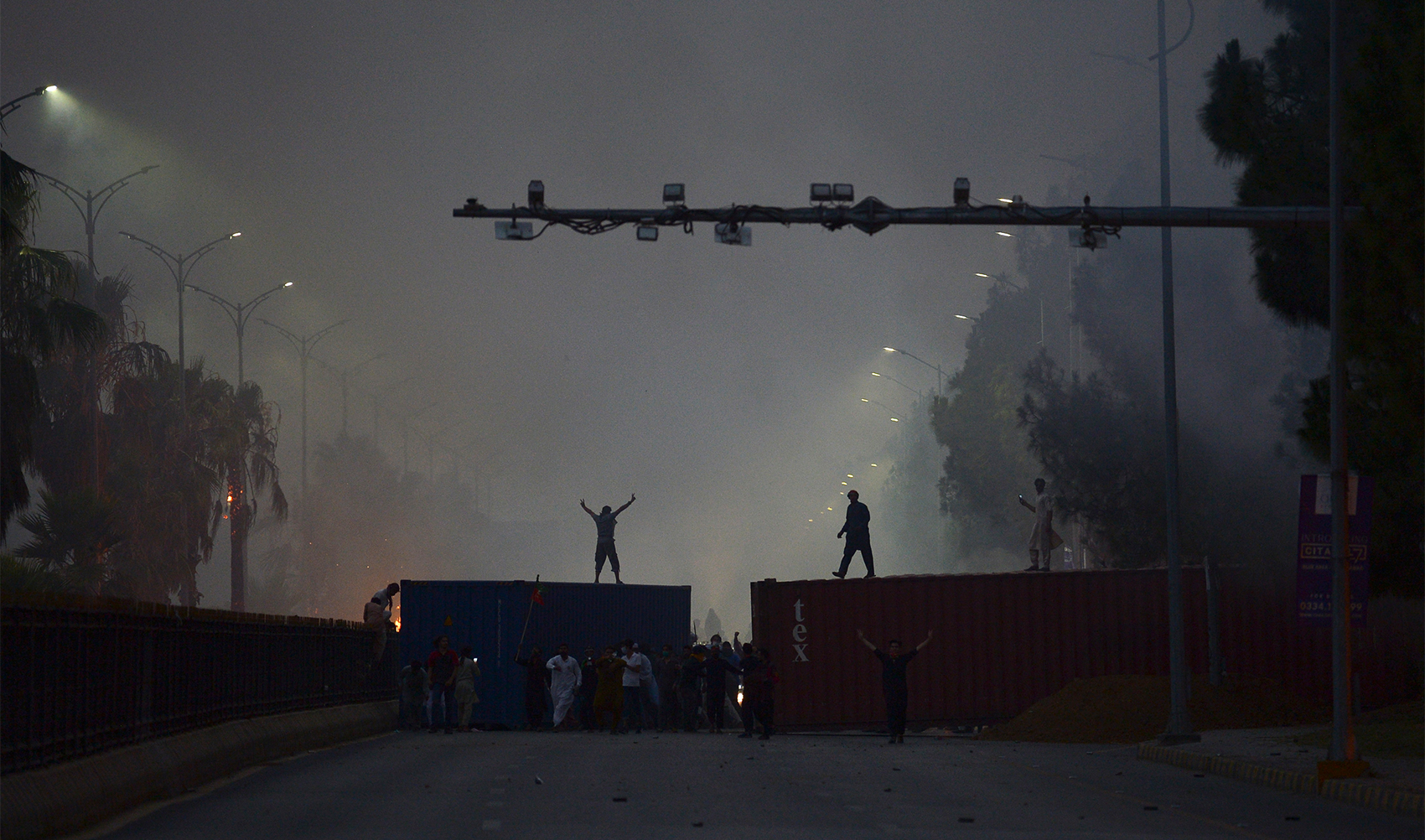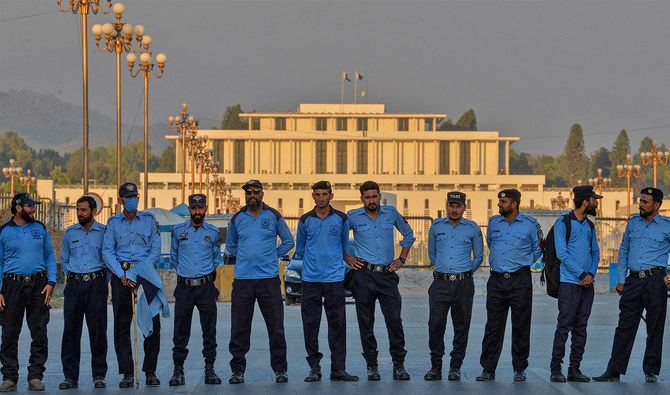ISLAMABAD: A large town square located in the government district of the Pakistani capital, for long the site of historic anti-government rallies and demonstrations, is in the spotlight ahead of general elections next month.
From slain former prime minister Benazir Bhutto to cricketer-turned-politician Imran Khan, Pakistani leaders of all shades and hues have gathered large crowds at D-Chowk, short for Democracy Chowk — for decades a frequent venue for political rallies and other public gatherings.
The square’s location on the junction of Jinnah Avenue and Constitution Avenue close to several important government buildings like the Presidency, the Prime Minister’s Office, Parliament, and the Supreme Court, has made it an ideal venue for political leaders and civil society aiming to make their voice heard, experts said this week.
“As most symbols of state institutions are at the Constitutional Avenue [road] and Parliament House is also there where our political representatives are available, so naturally the preferred choice [for protests and demonstrations] becomes D-Chowk,” Dr. Sajid Khan, a historian at the Allama Iqbal Open University, told Arab News.

Supporters of Pakistan's former prime minister Imran Khan, stand on top of shipping containers being used to block the road in front of the parliament building amid tear gas smoke during a protest rally in Islamabad on May 25, 2022. (AFP/File)
The first major protest took place at D-Chowk as far back as July 4, 1980, when a religious group protested against taxes imposed by the then government of military ruler General Muhammad Zia-ul-Haq, forcing authorities to cave in and exempt the payments.
In August 1989, Nawaz Sharif, who would go on to be prime minister three times, led the opposition parties to the square on the first death anniversary of Zia-ul-Haq. Opposition parties also marched toward D-Chowk on November 16, 1992 against alleged rigging in the 1990 general election. In July 1993, Benazir Bhutto, then the leader of the opposition, led supporters toward the Secretariat to pressure Sharif to resign. Pakistan’s famed Lawyers’ Movement against General Pervez Musharraf also ended with a long march in 2009 near D-Chowk in front of the parliament building.
More recently, Khan led thousands of supporters to D-Chowk in a bid to force then-prime minister Sharif to resign in 2014 in a sit-in protest that lasted for over 120 days. In February 2022, Pakistan People’s Party chairman Bilawal Bhutto Zardari also led his long march from Karachi to Islamabad’s D-Chowk.
Over the years, human rights activists and civil society organizations have also often chosen D-Chowk as the site of protests on issues such as enforced disappearances and extrajudicial killings.
The venue was also popular for other public gatherings, Dr. Khan said, and was initially chosen for the annual Republic Day Parade held each year on March 23, though the venue was later shifted to the Parade Ground for security reasons.
The fact that the public square is located close to Blue Area, Islamabad’s main commercial hub, also helped it get prominent coverage in the media, Khan said.
In April 2016, the government decreed that D-Chowk should be rebuilt to make it a no-go area for protesters but political rallies still continue to be held here.
“Under certain codes of conduct, and standard operating procedures,” Dr. Khan said, “protests should be allowed [at D-Chowk] as it is a constitutionally granted right.”
Fareeha Idrees, a senior journalist who has covered many protests at the square, said although the site had historical significance, D-Chowk’s politics seemed to be in decline, despite elections, as people’s appetite for coming out on the streets had dwindled.
“Nothing is final ever in politics but for any sit-in, you need resource and people’s willingness,” she said, “and both seem to have dried up after constant sit-ins and protests.”


















